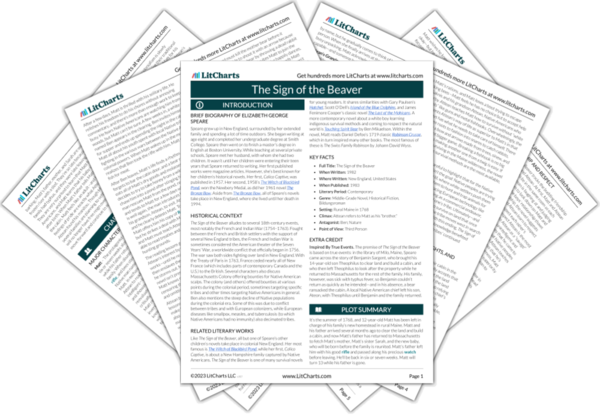While Ben framed Native peoples as a nuisance in the previous passage, here he talks about them like fun companions with whom to enjoy youthful hijinks. This could be for Matt’s benefit and entertainment, but it may again suggest that Ben genuinely thinks he, as a white settler, is superior to Native people. Matt must then reckon with his powerlessness. He doesn’t want to offend Ben, but he doesn’t want to get stuck serving Ben or wind up murdered. As a kid, there’s only so much Matt can do to protect himself in his father’s absence.
